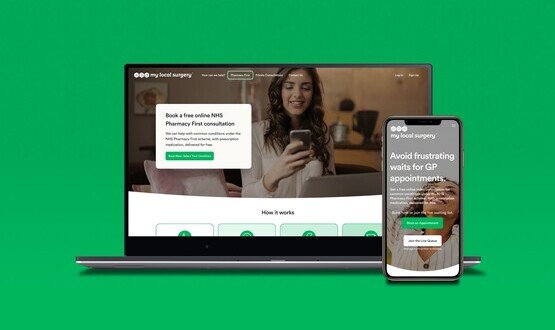Breaking down language barriers with digital health
- 3 November 2022

Jayshree Velani, dispensary manager at Ealing Hospital pharmacy explains how a web-based bilingual labelling solution has helped adherence and reduced healthcare inequalities.
Medication non-adherence is a major barrier to delivery of healthcare and being able to communicate effectively with patients is essential.
NICE estimates that between a third and half of patients on long-term treatment do not take their medicines correctly, contributing to the personal and economic burden of chronic illness.
It’s important that pharmacists can support and encourage their patients to take their medicines safely and effectively. However, language can prove an additional obstacle, particularly in ethnically diverse areas for whom non-adherence rates increase to over 70%. Many ethnic minority groups are up to six times more likely to get chronic conditions, due to their genetic predisposition, and at a much younger age.
London North West University Healthcare NHS Trust is one of the largest and most multicultural trusts in London, with almost 75% of the demographic it serves ethnic minorities, and almost 35% speak English as a second language. We see a lot of different types of language barriers. Some people live with someone or have friends to help them with translation, whereas others live alone and don’t have anyone to support them.
Traditionally we’ve used a interpreter from the language service department to communicate with patients about their medication, but this has its drawbacks. It can be time-consuming because the company we use has to get in touch with the interpreter. If it’s a straightforward medication, it takes between four and seven minutes once you get hold of them but it could take longer depending on the patient’s understanding and the complication of the dose.
Also, when the patient has been on the phone to the interpreter, it’s very likely they’ll lose quite a lot of the information as there are no written instructions to fall back on. That’s the old routine which I think still exists in other departments, but at the dispensary we’ve found something more innovative.
An evidence-based solution
We were approached by digital health firm Written Medicine in 2016 with the concept of web-based label dispensing software that enables pharmacists to print medication information in a patient’s chosen language.
It is an evidence-based solution, and the translations are vetted over a four-stage assurance process, with the final stage testing for clinical accuracy by a bilingual UK pharmacist literate in both languages.
The bilingual label software is now being used across all three of the trust’s sites at Ealing Hospital, Central Middlesex Hospital and Northwick Park Hospital and new staff are trained on how to use the system when they join.
Patient empowerment
One of the main benefits to the patients is that it aids adherence. The patient can follow instructions to take their medication on time, which has a knock-on effect on the patient’s health and saves money by stopping medication from being wasted.
It also allows patients to take ownership and responsibility for their own healthcare by taking their medication without having to be reliant on family, friends, or supporters to intervene and interpret the labels into their language for them.
When patients come to us, we routinely ask them how they’ve found the bilingual labels. We also did an internal audit, in which we interviewed patients to see what the experience was once they had their labels translated.
The patient feedback has been very good. Lots of people said they were very happy because they could now follow the instructions carefully and take their medications on time. If patients understand how to take their medication properly there’s a reduction in accidental overdosing and underdosing, so it improves overall patient safety.




1 Comments
Finally! So important, should be part of every prescription
Comments are closed.